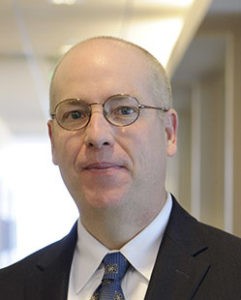I don’t think Baptists today are particularly gifted in the spiritual discipline of confession of sin.
We’re glad to echo Romans 3:23 and declare that all have sinned and fallen short of God’s glory, but we tend to avoid candid discussions of how sin has infected our individual lives in specific, concrete, ways.

Chris Conley
To do so strips away the abstraction from sin and brings it too close to home. We may not want to confess a sin if, by doing so, we’re forced to acknowledge and recall our own past shameful conduct and expose it to the light of day. We know we can’t hide our sin from God, but we often can hide it from others. And we want to. I want to confess a very specific sin.
In the late 1970s, a 14-year-old me heard a racist joke. I laughed. I later repeated that joke to others. They laughed as well. This has haunted me ever since. Almost a half century later, it literally makes me nauseated to think about it.
Even as a child, I was sufficiently steeped in white privilege — no, let’s call it what it is, white supremacy — to know what made that joke “funny.” It stood for the damnable lie that a Black person, by the mere fact of being born Black, is lesser. It sought under the guise of humor to keep people of color “in their place” by reminding them that it is a place well beneath that of any white person.
In all honesty, even as a 14-year-old, I knew enough to know that this bedrock principle of white supremacy was a ridiculous lie. My personal hero, Henry Aaron, was a Black man, and I so deeply admired his courage and grace in chasing his dream in the face of hatred and bigotry that the adult me would later name my own son in his honor.
I adored my elementary school principal, Frank Wiley, another Black man, and hoped some day to be the type of man he was. I so deeply admired him that I was later drawn to Martin Luther King Jr. because there was something in his voice and bearing that reminded me of Mr. Wiley.
I had too many Black friends whom I knew to be at least my equal (on their worst day, and my best day) to think my whiteness was a badge of superiority. But that just makes my sin worse.
“I still laughed at, and repeated, that joke — basically because a shameful calculus told me that fitting in with the crowd was more important than respecting the dignity of people of color.”
Despite understanding full well the lie that forms the foundation of racism, I still laughed at, and repeated, that joke — basically because a shameful calculus told me that fitting in with the crowd was more important than respecting the dignity of people of color, including people who loved me and who just happened to be Black.
I’ve carried the shame of that episode for 40 years, and I still remember the sickening feeling of knowing that what I was doing was wrong even as I did it.
For my friends, especially my friends who are persons of color, I am deeply sorry. My biggest fear in writing this is that it will damage our friendship. Frankly, I do not think that is very likely, because I know you well enough to be fairly certain that I will be shown much more love and grace than I deserve. Still, I owe you the honesty of a past sin confessed in deep remorse.
I know, though, that being sorry for a sin of past racism is helpful, but not enough. Confession without repentance is just as hollow as it is ineffectual.
On a positive note, the shame of that day all those years ago has left me aware that — as a white person living in a nation that privileges that status — I must be constantly mindful of the racism lurking at the door which may, in ways I may not even recognize at first blush, lead me to think of “white culture” as normative if not superior.
I remember even as an adult visiting the home of a dear friend, seeing a painting depicting Christ as an African man, and being momentarily taken aback. I devoted most of the rest of the day prayerfully coming to grips with the impact of a lifetime spent unquestioningly soaking in the equally, if not more, jarring pictures of Jesus as a blue-eyed white man — images that had beamed down at me from stained glass and from a host of Sunday school room posters.
I was able to wad up that cramped, literally white-washed image of Jesus and let it go and to embrace a much more honest view of Christ — thanks to a simple willingness to be vigilant as to my own latent racism.
More important yet, I know that repented racism carries with it a calling — both from God and from my neighbors — to actively work for a future where all such racist ideas are crumpled up and discarded, and to use my own voice to call attention to the present-day realties of white privilege and systemic racism. That is the type of true confession my sin calls for.
“Too many Americans still stumble at the point of confessing our past sins and talking honestly about a nation whose wealth was built largely on the backs of enslaved people of color.”
Imagine what following a similar path through confession to repentance could mean for our nation. Amazingly, too many Americans still stumble at the point of confessing our past sins and talking honestly about a nation whose wealth was built largely on the backs of enslaved people of color and which then spent decade upon decade keeping people of color “in their place” through segregation where possible, and through lynchings and terror where necessary.
We must come to grips with that past even as we honestly search out the myriad of ways that our nation’s current structures and institutions serve to maintain and even grow systemic racism.
Most of all, our national confession of past and present racism must be coupled with active repentance. I do not know how to even begin to estimate what amount of national investment will be needed in terms of reparations to try and repair the harm done, nor do I know what form such reparations will need to take to best serve that goal. I know beyond all doubt, though, that the current realities of systemic racism show that such reparations have not yet remotely been made, and I know that God calls out with God’s children for justice regardless of the costs.
I also imagine a similar path for our white American churches. We cannot move forward honestly absent a sincere confession that too many churches — including my own, which I love — were built largely thanks to tithes paid by slave owners on profits made through the sweat and blood of people held in chains. The dedication speeches for the Confederate Monument that stood for decades in Athens, Ga., were delivered from the pulpit of my church.
“The dedication speeches for the Confederate Monument that stood for decades in Athens, Ga., were delivered from the pulpit of my church.”
These are facts that must be acknowledged and mourned. We must then aggressively examine our current church practices and structures and be willing to uproot any and all barriers to making a life in Christ shared with our brothers and sisters of color a reality.
Finally, we must commit ourselves as congregations to champion racial justice, seeking to not just confess, but to repair and heal.
Racism is many things. One of those things it never is, and never was, is an innocent joke. I am sorry that I ever acted in such a way to make it seem like it was.
Chris Conley is an attorney and graduate of the University of Georgia and of the Emory University School of Law. He and his wife, Mary, live in Athens, Ga., where both are members and deacons at First Baptist Church. They have one son, Aaron, who also is an attorney, and a miniature schnauzer, Oso, whose career path remains uncertain.
Related articles:
You cannot follow Jesus and endorse racism. Period. | Opinion by Mark Wingfield
Learning to breathe in the Spirit by confessing, ‘I can’t breathe’ | Opinion by Patrick Wilson
How slavery still shapes the world of white evangelical Christians | Opinion by Richard T. Hughes


